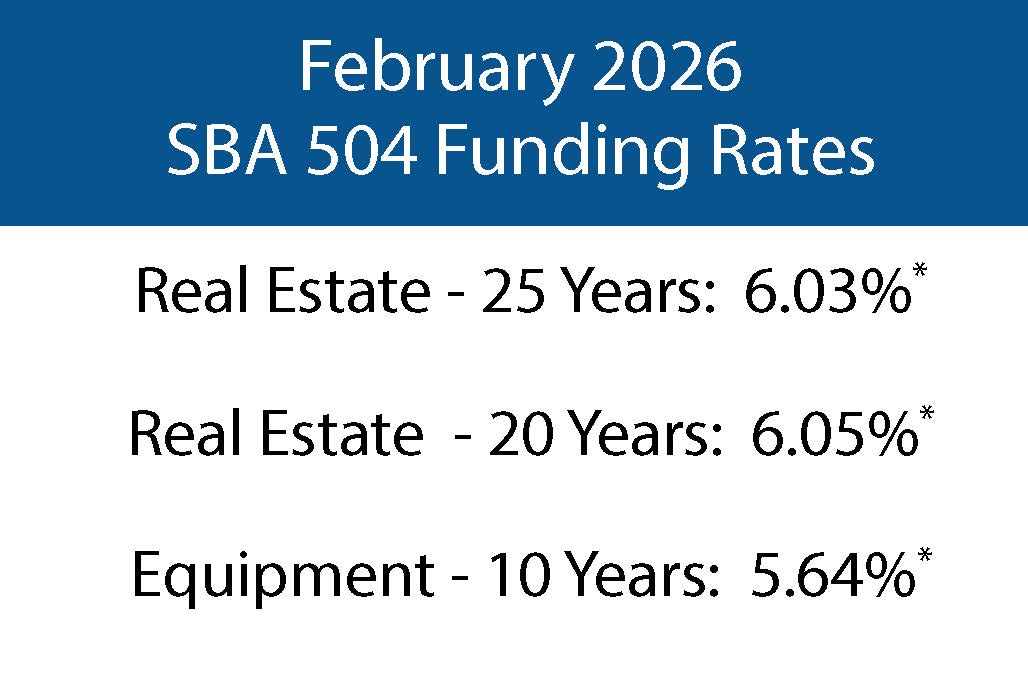How to Lower Your Commercial Mortgage Costs
In today's dynamic financial environment, many business owners are looking for ways to improve cash flow and reduce overhead expenses.
One often overlooked strategy is the SBA 504 Debt Refinancing program, which can be particularly valuable for businesses with existing commercial mortgages or fixed-asset debt.
What is SBA 504 Debt Refinancing?
SBA 504 Debt Refinancing is a government-backed loan program designed to help small businesses refinance existing commercial real estate or equipment debt. Unlike traditional refinancing, this program offers below-market fixed interest rates and longer repayment terms, potentially reducing monthly payments and improving cash flow.
The typical structure involves:
- A bank providing 50% of the financing as a first mortgage
- An SBA 504 loan covering up to 40% as a second mortgage
- The business owner contributes just 10% equity (usually equity in real estate, not cash from borrower).
- Usually results in 100% financing.
Recent Program Changes (November 2024)
The SBA recently implemented significant changes that make the 504 refinancing program more accessible and beneficial:
- Removal of the 50% cap on debt refinancing without expansion
- Increased loan-to-value requirement to 90% for projects with other business expenses
- Lowered "substantially all" standard to 75% for refinancing with expansion
- Elimination of the 10% substantial benefit test for government-guaranteed debt
- Expanded eligibility for "other secured debt" as an Eligible Business Expense
These changes, effective as of November 15, 2024, have removed several restrictions that previously limited access to the program.
When to Consider SBA 504 Debt Refinancing
SBA 504 refinancing may be particularly beneficial if:
- Interest rates have dropped since you obtained your original financing
- You need lower monthly payments through extended terms
- You want to consolidate multiple loans into a single payment
- You need to access equity (Cash-Out) for business expenses. Up to 18 months eligible expenses.
- You have an existing SBA loan that could benefit from updated terms.
How SBA 504 Refinancing Lowers Costs
The program offers several mechanisms for reducing commercial mortgage costs:
1. Below-Market Fixed Interest Rates
SBA 504 loans typically offer fixed interest rates that are below commercial market rates. The rates are tied to an increment above the 10-year Treasury yield, offering stability and predictability for long-term planning.
2. Extended Repayment Terms
With terms available up to 25 years for real estate (and 10 years for equipment), businesses can spread payments over a longer period, significantly reducing monthly obligations compared to conventional commercial loans that might require balloon payments after 5-10 years.
3. High Loan-to-Value Financing
The program allows up to 90% loan-to-value financing, reducing the amount of capital business owners need to commit to the transaction.
4. Cash-Out Options
Businesses can access up to 90% of the property's value, including existing debt) as cash-out for working capital needs, providing an alternative to higher-interest working capital loans.
Eligibility Requirements
To qualify for SBA 504 Debt Refinancing, businesses must:
- Be a for-profit company operating in the United States
- Have a tangible net worth less than $20 million
- Show average net income after federal taxes less than $6.5 million for the two preceding years
- Meet SBA size standards for their industry
- Demonstrate ability to repay the loan
- Have "qualified debt" as defined under SBA regulations
- Show at least 10% equity in the property via a current appraisal
The refinanced debt must have been originally used for eligible purposes, primarily fixed assets like real estate or equipment.
The Application Process
The refinancing process typically follows these steps:
- Connect with a Certified Development Company (CDC) like CDC New England
- Prepare financial documentation including business financial statements, tax returns, and debt information
- Obtain a property appraisal showing at least 10% equity
- Secure bank participation for the first mortgage portion
- Complete SBA application forms with your CDC's assistance
- Close the loan once approved

Real-World Benefits
For New England businesses, the benefits can be substantial. Consider a manufacturing company with a $1.5 million commercial mortgage at 7% with 10 years remaining and a balloon payment due in 2 years. By refinancing through the SBA 504 program, they might secure a 25-year term at 5.5%, reducing monthly payments by thousands while eliminating the looming balloon payment concern.
Partner with Experienced SBA Lenders
Navigating the SBA 504 refinancing process requires expertise. Working with experienced SBA lenders like BDC Capital, which has been serving New England businesses since 1953, can simplify the process and ensure you maximize the benefits available.
As a Premier Certified SBA 504 Lender operating in New England, we can approve loans unilaterally and often provide additional financing options that other lenders cannot, including down payment assistance.
Is SBA 504 Refinancing Right for Your Business?
While SBA 504 refinancing offers significant advantages, it's not the right solution for every business. The program works best for stable, growing businesses with existing commercial real estate or equipment loans that could benefit from improved terms or extended repayment periods.
Contact us today to discuss whether SBA 504 refinancing makes sense for your specific situation and to learn how our team can help guide you through the process from application to closing.




.jpg)
